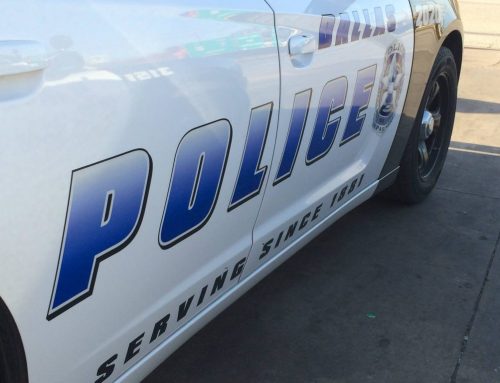
No students will be removed from Booker T. Washington High School for the Performing and Visual Arts, Dallas ISD officials say, no matter whether the students and their families live outside of Dallas ISD boundaries now or when they applied.
Superintendent Michael Hinojosa and senior Dallas ISD administration officials delivered that message personally to parents, students and faculty last week during a series of meetings with student leaders and parents at the district’s renowned arts magnet school.
Lily Weiss, Dallas Arts District executive director who taught at the arts magnet from 1978 to 2016, summed up Hinojosa’s message to faculty and student leaders as: “I will stand up to the board of trustees if there’s any question with how I feel about the quality of this school and about the idea that [I am] not here to put students out.”
That message is seemingly an about-face from spring and fall 2019, when an Advocate investigation prompted district leaders to begin acknowledging that suburban parents were using fraudulent residency schemes to claim spots at DISD’s most sought-after schools, circumventing board policy that prioritizes in-district students.
District officials’ public statements at the meeting with Booker T. parents also appear to contradict written district policy about magnet enrollment developed last year, when an elaborate new admission process for magnet schools that would flag any students new to DISD or who changed addresses was implemented. The district began requiring beefed up documents proving residency and asking parents to sign forms that allow for home visits. The forms threaten legal action for falsifying information.
When 35 Booker T. students voluntarily left or didn’t show up in the fall, district officials said it proved the new process was working.
Weiss noted, too, that the “bounty … offered [for] kids who are minors in this public school system” is what prompted her to call the DISD superintendent and ask for a meeting.
A January Advocate report, however, found that the district’s efforts were not as effective at policing freshmen from suburban ISD middle schools who had used Dallas addresses to apply to Booker T. A corresponding column from the Dallas Morning News’ Sharon Grigsby questioned why the new residency checks were being downplayed at Booker T.’s open houses for prospective parents. Soon afterward, an independent Austin-based group called Government Crimestoppers discovered Grigsby’s columns and posted a potential $5,000 reward for tips leading to the ouster of suburbanites trying to skirt DISD’s rules.
 Incensed Booker T. parents took to the mic at a Feb. 27 Dallas ISD board meeting. The “bounty,” as noted in Eva-Marie Ayala’s Dallas Morning News article, appears to have pushed some in the Booker T. community to the brink. A week later, the News’ editorial board decried the “culture of fear” the “bounty” had created. Weiss noted, too, that the “bounty … offered [for] kids who are minors in this public school system” is what prompted her to call the DISD superintendent and ask for a meeting.
Incensed Booker T. parents took to the mic at a Feb. 27 Dallas ISD board meeting. The “bounty,” as noted in Eva-Marie Ayala’s Dallas Morning News article, appears to have pushed some in the Booker T. community to the brink. A week later, the News’ editorial board decried the “culture of fear” the “bounty” had created. Weiss noted, too, that the “bounty … offered [for] kids who are minors in this public school system” is what prompted her to call the DISD superintendent and ask for a meeting.
So Hinojosa and his team traveled to Booker T. last week to reassure faculty, students and parents that no one would be kicked out of the school, regardless of how the student was enrolled.
At the meeting, which allowed parents to air their concerns and hear the district’s response first-hand, Dallas ISD deputy chief Brian Lusk noted that “there’s a lot of noise the media has created that we’re not in favor of.” DISD spokeswoman Robyn Harris insisted that she’s “emphasized” and “overemphasized” an alternate narrative that “is not coming out.”
To help ensure transparency, we’ve published the full transcript of the meeting, including the 70-minute audio recording, so readers can analyze the discussion. We’ve also excerpted some elements from the meeting, and from past reporting, for those who don’t want to spend time reading/listening to the full transcript.
What qualifies as in-district residency?
“Parent(s) or Legal Guardian(s) must actually reside with the student within the Dallas Independent School District boundaries. ‘Residence’ is the permanent primary physical location where a person lives and sleeps. The residence of a minor child is presumed to be the residence of the parent(s) or guardian(s) who have legal physical custody of the child.
i. If the student’s parents are divorced and share physical custody, the student’s residence is the location where the student lives the majority of the time — with the primary or majority custodial parent (court documents will be required).
ii. If the student is not living with a parent, the Dallas Independent School District requires that a responsible adult obtain legal guardianship through the court system (notarized letters from parents giving “guardianship” to others are unacceptable).
iii. A temporary resident within the Dallas Independent School District boundaries solely for the purpose of attending a Dallas Independent School District school shall not be considered residency.” —Definition of residency, Dallas ISD Magnet Programs Proof of Residency Frequently Asked Questions and Answers
THEN VS NOW
“For each magnet program, all qualified in-District students shall be served before any out-of-District student may gain admission into that magnet program. Proof of residence shall be submitted each year.” —Dallas ISD local board policy EHBJ
The term “in-district” needs to be defined clearly “to encourage honesty instead of dishonesty.” —Stephanie Elizalde, DISD chief of school leadership, May 17, 2019 Advocate story
“I live in Plano, and I want my child to go to Booker T. so much that I’m renting an apartment for four years. We’re not going to stay there, but I’m going to collect my mail there. Is that in-district? … Magnets should be for students who really, really, really live here.” —Elizalde, Aug. 1, 2019 Dallas Morning News column
“It is OK for a resident to have a residence in Dallas and have a residence somewhere else? That was verbally said in September. And that’s some of the stuff that comes up in the media — that that’s not allowable, but it is allowable if you’re paying taxes and have a home … You can have multiple residences; you got in the correct way. You have a situation where you live in two locations, you get to stay. So it doesn’t change the fact that we’re going to check to see if the documentation is false from the beginning. We will check that. But that has nothing to do with whether you got in correct or not.” —Tiffany Huitt, DISD executive director of magnet schools, March 4, 2020, Booker T. parent meeting
Can out-of-district students attend Dallas ISD magnet schools?
“I have a space available for oboe. Really, how many of my DISD kids have had lessons in oboe?” —Elizalde, Aug. 1, 2019 Dallas Morning News column
“In the event there’s not the depth there, the seat will still be filled [with an out-of-district] student. There are only a select few in the district who even play an oboe. If only two or three of the entire 150,000 students play the oboe, the likelihood of them coming from the district is slim. They also have to be interested in applying.” —Robyn Harris, DISD spokeswoman, Feb. 28, 2020 interview
THEN VS NOW
“For each magnet program, all qualified in-District students shall be served before any out-of-District student may gain admission into that magnet program. Proof of residence shall be submitted each year.” —Dallas ISD local board policy EHBJ
“Residency supersedes talent. Policy will always supersede everything else. We ensure that our district students are served and seated first, and then any other student will receive seats.” —Keisha Crowder-Davis, DISD magnet office director, Feb. 28, 2020, Advocate interview
“Point blank, we’ve got so many more talented kids than we’ve got seats in our specialized programs in Dallas.” — Ben Mackey, DISD trustee and former Talented and Gifted High School magnet principal, May 17, 2019, Advocate story
“The big issue is, students come from outside the district in some cases, right? Some people see that as a problem, but as our superintendent shared this morning, we as a district also look at recapture. ‘Recapture’ means we’re pulling students in who were not in our district. We use two terms in Dallas ISD from a recapture perspective. ‘Recapture,’ which is students who live in Dallas ISD are not going to our school because for some reason or another they don’t see them as viable. Right? Or No. 2, ‘recapture plus,’ students who live outside of Dallas ISD who are not coming to Dallas ISD but now come to Dallas ISD. In either case, funding follows a student. So we have a vested interest in keeping our students. So our efforts, contrary to what you hear out there, our efforts are not about removing students.” —Brian Lusk, DISD deputy chief of strategic initiatives, March 4, 2020, Booker T. parent meeting
“With this next group of acceptances — because you know, right now, more letters are, you know, getting ready to go out or have just gone out, right? So what do you know, there’s probably gonna be some more students who might be out of the district that are going to get in. Guess what? So what, that’s the way it is. When you have a great product, people want that product. And if that happens, so be it.“ —Lusk, March 4, 2020, Booker T. parent meeting
Are suburban families cheating their way into DISD magnet schools?
“For each magnet program, all qualified in-District students shall be served before any out-of-District student may gain admission into that magnet program. Proof of residence shall be submitted each year.” —Dallas ISD local board policy EHBJ
THEN VS NOW
“I absolutely see evidence of students who misrepresented their real residence to gain admission to our magnets. Families are trying to circumvent the intent of the admission policy our board has approved.” —Stephanie Elizalde, DISD chief of school leadership, May 17, 2019 Advocate story
“Our intent is to help those folks gracefully withdraw on their own,” but “if people think they are going to challenge the system and see if we really check — well, we will.” — Elizalde, Aug. 1, 2019 Dallas Morning News column
“We know that, by and large, our families are legitimately being enrolled and accepted at Booker T., not just this year but in years past.” —Harris, Feb. 28, 2020 Dallas Morning News story
“We know that 99% of parents and students applied to this school and got in legitimately, and there’s a lot of noise the media has created that we’re not in favor of.” —Lusk, March 4, 2020 Booker T. parent meeting
“Now there are some situations where maybe some information has been falsified, maybe? Probably so, right? But we’re not going to go hunting for our students and say, where does this exist? … If we need to look into some residency concerns, and maybe because we find evidence of, parents didn’t actually provide us with the right residency verification or those falsified, if you will, it’s going to be, so far, one-off situations — we’re not out hunting for that. If that happens, then we’re going to ask parents, ‘Hey, just provide us another means of residency.‘ ” —Lusk, March 4, 2020 Booker T. parent meeting
“Every student on this campus belongs here. I really want that to resonate with everyone.” Principal Scott Rudes, March 4, 2020, Booker T. parent meeting
Can a magnet student move out of the district and remain at the school?
“For each magnet program, all qualified in-District students shall be served before any out-of-District student may gain admission into that magnet program. Proof of residence shall be submitted each year.” —Dallas ISD local board policy EHBJ
THEN VS NOW
“We need to be clearer and more explicit with parents that they cannot move out of DISD during the years they attend Booker T. … Silence is a response, and usually it’s taken as acceptance. If that continues to happen, we are enabling it.” —Elizalde, May 17, 2019 Advocate story
“If a child gets in and he or she as a family has to move, we’re not going to create a hardship for a family because they move. They will remain in the school. … Student legitimately gets in, whether they’re in-district or out-of-district — ’cause that can happen either way — he or she has a family situation, the family moves, student stays at the school. Change does not happen all four years. … The question came up this morning, did we change policy? I think to be candid with you, we’ve changed our position, recognizing that there needs to be continuity, and students don’t need change.“ —Lusk, March 4, 2020 Booker T. parent meeting
Have any magnet students been kicked out for purporting to live in the district?
“For each magnet program, all qualified in-District students shall be served before any out-of-District student may gain admission into that magnet program. Proof of residence shall be submitted each year.” —Dallas ISD local board policy EHBJ
“All new to program students who fall into specific categories will be flagged and subject to additional residency verification. If the student is unable to substantiate residence, the student may be withdrawn at the end of the semester. (Dallas ISD FD Legal Residence- A district may withdraw any student who ceases to be a resident. Daniels v. Morris, 746 F.2d 271 (5th Cir. 1984)).
“If a senior is found to be a non-resident, the senior may sign a petition/waiver to graduate from their current school regardless of the residential boundary. According to the Dallas ISD Board policy, all seniors have this right. For juniors, sophomores and freshmen, students may be withdrawn from the magnet program at the end of the semester if all three of the following conditions apply:
a. The student is currently a non-resident and applied as an in-district student
b. The student cannot provide proof of in-district residency utilizing allowable documentation
c. There is a current in-district waitlist”
—Revised DISD process for magnet students, email from Huitt, Sept. 23, 2019
“One thousand and two [1,002] families were identified as needing to provide additional proof of residence. … To date, all parents receiving the request for additional documentation have been able to produce it. … They must continue to provide further evidence of residency throughout their tenure in Dallas ISD magnet schools. … We know some parents will attempt to circumvent the system by providing false documentation and are making every effort to ensure we put systems in place to preserve the integrity of our magnet acceptance policy. [Booker T.] had 15 students designated as ‘no-show’ on the first day of school. Of the 15 students, 13 of them attended an out-of-district school the previous year. They also had 20 students withdraw. I believe this indicates that some parents chose to opt-out of the school to avoid consequences.” —Email from Huitt, Jan. 29, 2020
How many magnet families have faced legal consequences for presenting false records?
“For each magnet program, all qualified in-District students shall be served before any out-of-District student may gain admission into that magnet program. Proof of residence shall be submitted each year.” —Dallas ISD local board policy EHBJ
“Evidence that false information was provided will result in the withdrawal of the child(ren) from the magnet school. Presenting a false record or falsifying records is a criminal offense punishable by up to 10 years and $10,000. TEXAS PENAL CODE §37.10. A person who enrolls a child under false documents may be liable for the cost of tuition or other costs. TEXAS EDUCATION CODE §25.002(d).” — The consequences for residency fraud, Dallas ISD Magnet Programs Proof of Residency Frequently Asked Questions and Answers
“If you have information regarding admission irregularities at Booker T. High School or other magnet schools, send us a tip online in order to be eligible for a reward up to $5,000.” —Government Crime Stoppers website
“I wouldn’t know what the criminal action is for this type of incident. I think [including legal consequences on the form] is just a way that if something is so egregiously done, there’s still a way we’re covering individuals who would go to great lengths to deceive.” — Harris, Feb. 28, 2020, Advocate interview
“I regret that that article is there, and it’s some entity out there saying, we’re going to pay $5,000. I think it’s a bit ridiculous. It’s really ridiculous, right? It’s an inappropriate mind[set]. But nonetheless, that’s not our position.” — Lusk, March 4, 2020, Booker T. parent meeting
“It’s a small segment of people who may not follow the process legitimately, and … the efforts we were looking at were aimed at that. But again, it blew out of proportion. So those were a mistake.” —Lusk, March 4, 2020, Booker T. parent meeting





